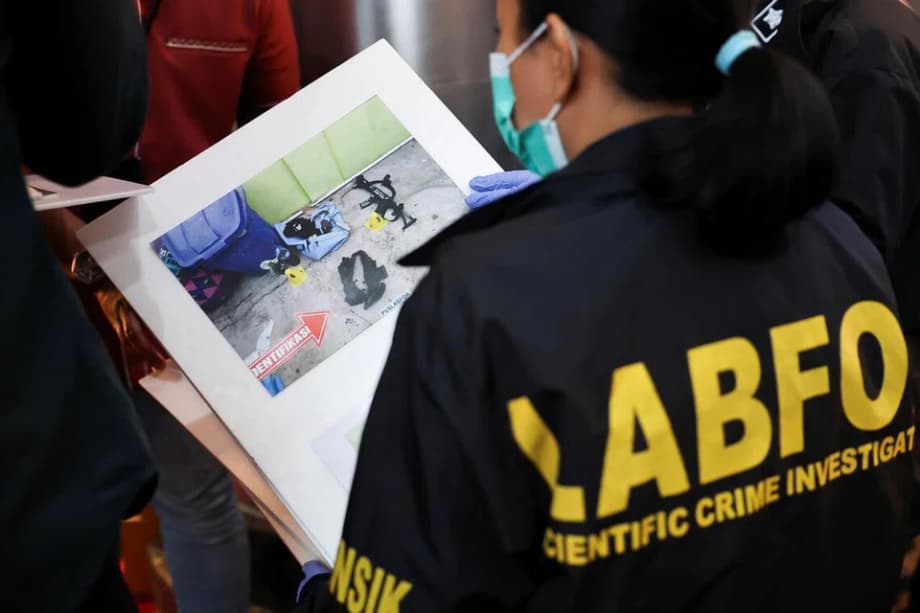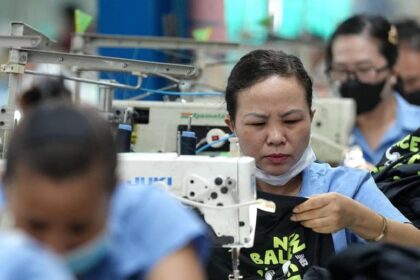What changed in the justice process
Indonesia has approved the most far reaching rewrite of its Criminal Procedure Code in more than four decades. Lawmakers say the overhaul will speed up prosecutions, cut court queues, and align procedures with the new criminal code that is scheduled to take effect in 2026. The legislation, passed on Nov 18, touches nearly every stage of the criminal process, from the first inquiries by investigators to trial, sentencing, and enforcement. Under the Constitution, the president has 30 days to sign the bill. If no signature comes, it still enters into force. The government’s plan is for the revised procedures to operate alongside the new criminal code starting in 2026, creating a single timetable for reform.
The measure consolidates investigative authority under the national police and expands the ability of law enforcement to act without a warrant in urgent situations. It gives investigators, prosecutors, and judges broader power to freeze bank accounts and digital assets and to block electronic transactions when a case is being built. Supporters argue that these steps answer the growth of cyber enabled crimes and the need to preserve evidence that can vanish in seconds.
The law also introduces tools found in many modern systems, among them plea bargaining, a clearer framework for justice collaborators, and a deferred prosecution agreement option for corporate offenders. Lawmakers contend that the mix will ease pressure on courts and encourage cooperation in complex financial and organized crime cases. Rights advocates counter that several articles are vague, give too much discretion to investigators, and lack strong checks. A coalition of civil society organizations has filed a complaint with the legislature’s ethics council, saying the debate was rushed and that public participation was overstated. Lawmakers defend the process and say stakeholders were consulted.
New powers for investigators and courts
The overhaul centralizes more authority in the hands of investigators and gives courts and prosecutors new tools for case management. It also revises how arrests, searches, surveillance, and asset freezes can be used. The changes are extensive and will reshape everyday practice for police, prosecutors, and judges.
Urgent actions without warrants
One of the most debated changes allows investigators to act without a warrant in urgent situations. Critics warn the language is broad and could be read to permit arrests, searches, and seizures at the early inquiry stage, when a crime has not yet been confirmed. Many legal systems permit fast action in emergencies, but require swift judicial review and clear documentation. Rights groups argue the new code does not spell out those safeguards in enough detail, which could weaken oversight by judges during the first hours and days of a case.
Digital and financial controls
The law expands power to freeze bank accounts and digital assets and to block data or electronic transactions during an investigation. It also provides a path for investigators to conduct interception and data collection without prior court approval in defined circumstances. Supporters say this reflects the reality of modern criminal networks that move funds through multiple banks, e wallets, and crypto platforms. Business and civil liberties advocates worry about mission creep, potential errors when innocent accounts are frozen, and the lack of clear time limits and review procedures. The balance between preserving volatile evidence and protecting privacy will be tested as the rules are applied.
Centralization of investigations
Under the revised structure, civil service investigators and special investigators are placed under national police supervision. Proponents say a single chain of command will reduce duplication, clarify responsibility, and improve coordination. Critics fear that specialized expertise in areas such as environmental protection, tax enforcement, and consumer safety could be diluted, and that concentrating power in one institution without stronger external checks raises the risk of overreach.
Modern tools to resolve cases faster
The law brings three major case resolution tools into the heart of Indonesian procedure: plea bargaining, explicit rules for justice collaborators, and deferred prosecution for companies. It also opens room for restorative justice at more points in the process. These mechanisms can cut delays and focus resources on the most serious cases if they are used with clear standards and transparent court oversight.
Plea bargaining explained
Plea bargaining allows a defendant to plead guilty to some charges or to a lesser offense in exchange for concessions, often a lighter sentence or dropping of other counts. In systems that use it widely, plea deals resolve most cases and reduce trial backlogs. They also free investigators and prosecutors to concentrate on high harm crimes. The risks are real. Defendants may feel pressure to admit guilt to avoid a harsher outcome at trial, especially if they cannot access early legal advice. Strong judicial scrutiny, clear written records of any agreement, and the right to counsel are central to preventing coerced pleas.
Justice collaborators
The justice collaborator framework gives defined benefits to suspects or defendants who provide substantial help to uncover larger crimes or networks. This approach is valuable in corruption, trafficking, and organized crime cases, where insiders often hold the key to evidence. The new code’s promise is predictability. If the criteria and protections are detailed in regulations, collaborators gain confidence to come forward, and prosecutors gain a reliable tool to break complex cases. Without detailed rules, inconsistent practice or bargaining behind closed doors could undermine trust.
Deferred prosecution for companies
Deferred prosecution agreements allow prosecutors to suspend criminal charges against a company if it admits facts, pays penalties, and undertakes compliance reforms under monitoring for a set period. If the company complies, the case can be closed without a conviction. DPAs are used in many jurisdictions to drive real changes in corporate culture and to punish wrongdoing without destroying a viable business that employs many people. Clear criteria for when a DPA is offered, transparent court approval, and public reporting on outcomes are essential to avoid a perception that large companies can buy their way out of trouble.
Restorative justice and cautions
The reform opens space for restorative justice at various stages, including early inquiry. Restorative approaches can bring victims, offenders, and communities together to agree on remedies, which can be effective for minor offenses and first time offenders. Rights advocates warn that offering such outcomes too early, before facts are firmly established, risks coercion, forced settlements, or unequal treatment. Detailed guidance and informed consent standards will be needed to keep the process voluntary and fair.
Safeguards and oversight in question
Human rights groups, legal aid networks, and student organizations have mounted vocal opposition to several parts of the bill. They argue that vague wording leaves room for abuse of power and that the legislature rushed deliberations. A formal complaint has been lodged with the House’s ethics council alleging that lawmakers misrepresented the scope of public participation. Authorities deployed large numbers of police to manage demonstrations around the national parliament, underscoring the high stakes and heightened public scrutiny.
- Arrest, search, and detention powers during the inquiry stage, when the existence of a crime has not yet been confirmed.
- Twenty four hour arrest without charge with exceptions, and broad detention for offenses punishable by five years or more.
- Searches, seizures, data blocking, and interception without prior judicial authorization in defined circumstances.
- Undercover buys, controlled deliveries, and surveillance authorized at the inquiry stage.
- Placement of civil service and special investigators under national police supervision.
- Restorative justice available at any stage, including inquiry, with potential for coercion.
- Court ordered rehabilitation or treatment for suspects with severe mental or intellectual disabilities without explicit time limits.
- Installation of security cameras in interrogation and detention rooms, a safeguard many rights groups welcome.
A broad coalition of civil society organizations issued a joint statement urging lawmakers to tighten definitions and reinforce independent oversight. After introducing their concerns about unchecked authority and weak procedural controls, the coalition said the legislative debate did not fix the core problems.
A coalition of civil society organizations said: “The discussion of this Bill failed to address problematic and vague articles that enable abuse of power.”
Coalition members argue that public input was largely ignored and that an accelerated timetable reflects political pressure to ensure the procedure code takes effect alongside the new criminal code in 2026. Lawmakers reject that view and say they consulted widely across security agencies, the judiciary, academics, and professional associations.
How this ties to the 2026 criminal code
The procedure code is designed to operate with Indonesia’s new criminal code, which replaced colonial era provisions after a long and heated process. The criminal code includes morality and speech offenses that have drawn concern from businesses, rights advocates, and foreign partners. Those debates are relevant here because any change in what counts as a crime needs matching rules on how cases are investigated and tried. The alignment goal helps explain the timing and the breadth of procedural changes in areas such as arrest thresholds, evidence collection, and corporate liability.
Officials have framed the broader reform effort as a move to reflect national values and to bring clarity to contradictory laws. As one senior justice official said when the new criminal code was advanced in 2022, “We are proud to have a criminal code that is in line with Indonesian values.” That political message highlights a key tension. The state wants a faster, more responsive justice system. Citizens and businesses want predictability, privacy, and the assurance that new powers will be checked by independent judges. The implementing regulations for both codes will do much of the heavy lifting to reconcile those aims in practice.
Corporate crime, cyber evidence and digital assets
Financial crime and cyber enabled offenses move at high speed, jump across borders, and hide in shell companies or anonymous wallets. The ability to freeze bank accounts, digital wallets, and other assets early in a case, and to block electronic transactions while evidence is gathered, addresses a real investigative challenge. These steps can stop suspects from moving assets beyond reach and can preserve a trail for auditors and courts. They also touch legitimate business activity and personal privacy. Clear criteria for initiating a freeze, strict time limits, and prompt avenues to contest or modify an order will be vital for fairness.
Deferred prosecution agreements can give prosecutors a stronger hand against corporate wrongdoing while encouraging real compliance upgrades. A company that admits facts, pays penalties, and submits to monitoring can avoid a conviction, while the public gets transparency about violations and a court supervised plan to prevent a repeat. Such agreements work best when the rules for eligibility, oversight, and reporting are public and consistent. If the standards are opaque, confidence in equal treatment will erode.
The use of digital evidence, interception, and data blocking powers will require robust chain of custody practices, audit logs, and regular court review. Without those elements, defense lawyers will challenge the integrity of evidence and risk of selective use. Indonesia’s recent removal from the global anti money laundering gray list shows what is possible when laws evolve and enforcement improves. Applying the new powers with discipline and documentation will be the difference between faster justice and a surge of contested cases.
What happens next
The president now has a 30 day window to sign the bill. Even without a signature it becomes law, but draft regulations, training, and new guidance will determine how it works on the ground. Police, prosecutors, judges, and defense lawyers will need updated manuals and technology, from interrogation room cameras to secure evidence systems. Early cases will set precedents on what counts as an urgent situation, how long an account can be frozen before court review, and when a plea agreement is acceptable.
Rights groups are preparing for potential constitutional challenges once the law is in force, focusing on articles that affect liberty and privacy. The new requirement to install security cameras in interrogation and detention rooms is widely seen as a concrete step against abuse. Many other safeguards will depend on implementing rules. Clear timelines for court review, detailed reasons for warrantless actions, access to counsel from the earliest stage, and public reporting on plea and deferred prosecution outcomes will shape real world impact. The country’s courts will likely be asked to draw the lines if legislative language remains broad.
What to Know
- Parliament approved a sweeping overhaul of the Criminal Procedure Code on Nov 18, the biggest change in more than 40 years.
- The president has 30 days to sign. If not signed, the bill still becomes law.
- The reform is scheduled to operate with the new criminal code in 2026.
- Investigative authority is centralized under the national police with new powers to act without a warrant in urgent situations.
- Investigators, prosecutors, and judges can freeze bank accounts and digital assets and block electronic transactions during a case.
- Plea bargaining, rules for justice collaborators, and deferred prosecution agreements for companies are introduced.
- Rights groups warn that vague articles and limited judicial oversight could lead to abuse of power.
- Critics filed a complaint with the legislative ethics council alleging a rushed process and limited public input.
- CCTV in interrogation and detention rooms is mandated to deter abuse, a safeguard welcomed by many.
- Implementation details, court review timelines, and access to counsel will determine how the reform works in practice.












